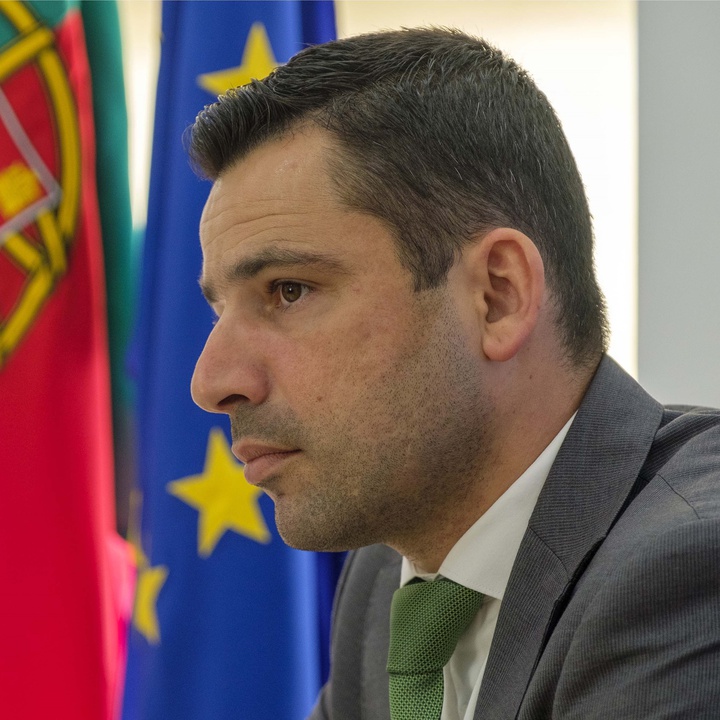Text size:
News

Regional Secretariat for the Environment and Climate Action launches INTERREG MAC project aimed at promoting circular economy in textile sector
Sept. 3, 2025
The Regional Secretary for the Environment and Climate Action, Alonso Miguel, informed that the Regional Government, through the Regional Directorate for the Environment and Climate Action, has begun participating in the European INTERREG VI D Madeira-Azores-Canary Islands (MAC 2021-2027) project – “TEXTIL: Weaving a Sustainable Future.” This is an initiative aimed at promoting the circular economy in the textile sector.
According to the government official, "the main goal is to reduce dependence on unsustainable textiles and strengthen the local economy by promoting reuse, recycling and more efficient management of textile waste in the Macaronesia regions – the Azores, Madeira, the Canary Islands and Cape Verde – as well as in partner African countries."
“The project aims to promote the transition to a more sustainable production and consumption model, thereby reducing the proportion of textile waste incinerated or deposited in landfills. It also intends to encourage its reuse and recycling through technological, management and cooperation solutions adapted to the regional context. The project represents an investment of more than 230 thousand Euros, co-financed by the INTERREG MAC programme," explained Alonso Miguel.
The Secretary for the Environment also revealed that "this project, which is of paramount importance to the Region, involves the participation of regional and local governments, academic institutions, including the University of Las Palmas, Gran Canaria, the University of La Laguna, Tenerife, the University of the Azores, the University of Cape Verde and the University of São Tomé and Príncipe, among other technological hubs. The initiative also involves civil society organisations and non-governmental organisations, such as AJITER – Terceira Island Youth Association and the Gaspar Frutuoso Foundation."
“The business sector is also represented by the Funchal Commercial and Industrial Association – Chamber of Commerce and Industry of Madeira,” he added.
Alonso Miguel pointed out that "the implementation of this project corresponds to one of the measures set out in the recently published Agenda for the Circular Economy of the Azores, responding to the different challenges in an archipelago region" such as the Azores.
“With the development of the circular economy, it will be possible to recover value from the waste generated and, consequently, reduce the consumption of raw materials and the production of waste that is not recovered or reused,” he added.
The Regional Secretary highlighted the efforts made by the Regional Government to improve waste management and promote the circular economy. In this regard, he recalled that, in addition to creating the Agenda for the Circular Economy of the Azores and approving specific regional legislation aimed at reducing the consumption of single-use products, a new Strategic Waste Prevention and Management Programme for the Azores - PEPGRA 20+ was also created, having been approved in 2023. Moreover, the process for the revision of the general scheme on waste prevention and management and the scheme on specific waste streams in the Region, which will shortly be discussed at the Azorean Parliament.
Alonso Miguel also highlighted "the restructuring works carried out at the Waste Processing Centres on six islands of the archipelago, representing an investment of about 6.1 million Euros." He reiterated the commitment to continuing the interventions to upgrade and strengthen the capacity of these infrastructures, with the recent "launch of a new procedure aimed at modernising recycling processes at the Waste Processing Centres on the islands of Pico, Graciosa, São Jorge, Santa Maria and Faial, an estimated investment of three million Euros."
At the beginning of this European project, the Regional Secretariat for the Environment and Climate Action calls on all Azoreans to participate in the analysis of the textile sector by completing surveys, thus enabling an assessment of the current situation regarding the use and destination of used textiles (post-consumer) on all the islands of the archipelago.
Consumers, companies, and entities using or managing textiles can participate by filling out the forms available on the communication channels and social media of the various project partners.
Alonso Miguel added that this project aims to promote the potential of the 9 Circular Islands platform and redefine public policies for used textiles, which currently represent a significant challenge in urban waste management. Additionally, it aims to raise awareness among the population about the prevention and recovery of this type of waste.
“The ultimate goal is to move towards a ‘zero waste generation’ in the Azores, aligned with the circular economy and environmental sustainability principles,” he concluded.

